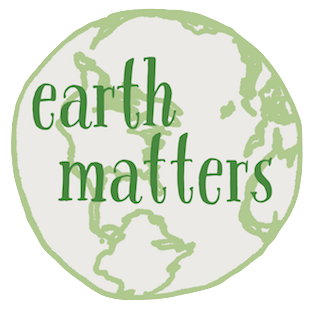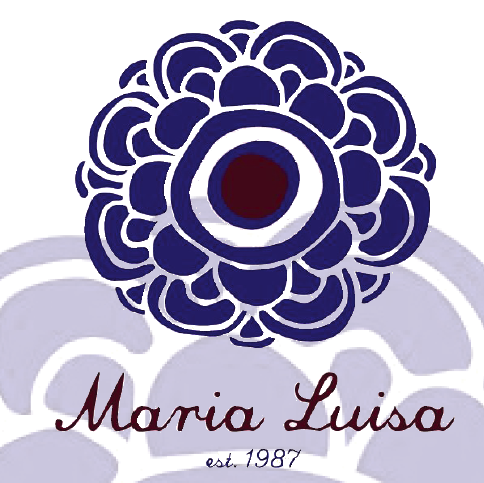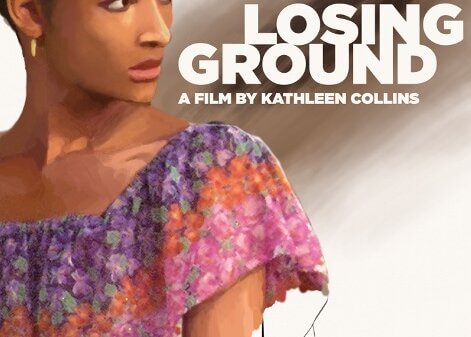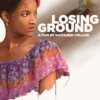by Susan Hellauer
 Earth Matters focuses on conservation, sustainability, recycling and healthy living. This weekly series is brought to you by Maria Luisa Boutique and Strawtown Studio and Summer Play Camp at Blue Rock School and Dying To Bloom, a natural burial boutique for humans and pets. On Sat, Feb 9 from 9a-4p, join the artists of Strawtown Studio at Teatown’s Eagle Fest.
Earth Matters focuses on conservation, sustainability, recycling and healthy living. This weekly series is brought to you by Maria Luisa Boutique and Strawtown Studio and Summer Play Camp at Blue Rock School and Dying To Bloom, a natural burial boutique for humans and pets. On Sat, Feb 9 from 9a-4p, join the artists of Strawtown Studio at Teatown’s Eagle Fest.If Earth Matters to you, sign up for our mailing list and get the next installment delivered right to your inbox.
Have you ever stood over the recycling bin, item in hand, and thought “Yes?… No?” Well, Earth Matters and the Rockland County Solid Waste Management Authority (RCSWMA) are here to set you straight on the most common recycling head-scratchers. Recycling rules are hyper-local, so we spoke to Kerri Scales, RCSWMA education coordinator, for the up-to-date lowdown on where to put that . . . thing.
Here, in no particular order, are our top ten recycling mysteries, solved.
Plastic bags and film
Single-use plastic bags, plastic film from the dry cleaner, and plastic overwrap on grocery-store multi-packs, like paper towels, go into recycling containers at the supermarket or big box store. Any plastic film can go back to any store. It’s sold to manufacturers who make plastic items from it, wood-sawdust and plastic Trex decking.
Never wrap your recycling in a plastic bags or put them into the recycling bin.
And watch out for those “healthy snacks” in plastic pouches. You might feel good while you’re munching, but when that thick, multilayer bag has to go into the trash—not so much.
Compostable plastic
Purveyors of takeout food, especially the healthy organic kind, are turning to plant-based, compostable single-use utensils instead of petroleum-based plastics. So where should these feel-good forks end up? For now, in the trash, just like the plastic ones. Backyard compost bins won’t break them down. “Eventually, if we move to residential composting, these items may be able to go into those bins,” said Scales. Meanwhile, at least they won’t shred into everlasting microplastics in the ocean or landfill.

Two plastic food pouches. The large pet food bag is multilayered and not recyclable. The smaller frozen berry pouch is single layer, and marked with the recycling chasing-arrows (red circle). Photo: Susan Hellauer
Mixed materials containers
Some food containers are made of more than one material. Number one on the recycling public enemies list? Those Pringles containers with tightly fused metal, plastic, and paper. Toss the whole thing into the trash. If you don’t, it has to be fished out at the recycling facility, and that costs taxpayers money in wasted time and labor. “But remember that you have the power of choice here: You can go into the store and NOT buy a product with non-recyclable packaging,” said Scales, who also suggested calling or writing a letter to the company. “Let them know that you’ve stopped buying their product because their packaging isn’t sustainable.”
Caps and lids
We checked, and it’s true. Go ahead and put those lids back onto glass and plastic containers before you toss them into the recycling, and leave the labels on too. The lids are often recyclable themselves, and can help head off contamination from things that are hard to rinse completely, like laundry detergent bottles. Pop-off or other metal can lids can also go into the recycling. Tuck them into the can first. But, with or without a cap, never put aerosol cans into the recycling.

Recycled paper is processed at the Rockland County Materials Recovery Facility. Photo: Susan Hellauer
Lightbulbs
If your house is like mine, you’ve got three different kinds of lightbulbs lurking: an old incandescent or two, compact fluorescent (CFL), and LED. The incandescents and LEDs go into the trash. It’s just too difficult to harvest the glass from them with current technology. But all fluorescent bulbs contain some mercury and must go to the Household Hazardous Waste (HHW) drop-off site in Pomona. Mercury in landfills, from CFLs, batteries, and other electronics, can contaminate water and soil.
Pasta-box plastic
A little OCD about your recycling? You’re not alone. But you don’t have to remove the small bits of windowpane plastic from pasta and facial tissue boxes before recycling. Those will be separated out when the boxes get “pulped” at the paper recycling plant. Just flatten the box and recycle.
Pizza boxes
“We eat a lot of pizza in Rockland County,” said Kerri Scales, “and the pizza-box problem comes up all the time.” Bottom line: Don’t recycle any paper or cardboard that is grease stained. But a little spot here or there is no problem. You can tear the unstained or almost-clean top off the pizza box and recycle that. Toss the rest into the trash.

If you “wishcycle” nonrecyclable items, they must be removed and discarded–costing time and money–by workers like these, at the county Materials Recovery Facility in Hillburn. If in doubt, check the Rockland County resident recycling guide, or your own local recycling rules, which may be different. Photo: Susan Hellauer
Shredded paper
If you just can’t wait for one of the county’s free shredding events, put shredded paper into paper bags and put into the recycling with your other paper items. (Find dates for 2019 free shredding events on the rocklandrecycles.com website)
Electronics
I dutifully brought my broken microwave to the Household Hazardous Waste drop-off in Pomona, and was told to take it back and toss it into the trash, or bring it to a salvage yard. It’s the potentially polluting substances in certain kinds of electronics—like televisions, computers, tablets, CD players, telephones—that need special treatment. Save yourself a trip, and consult the list of hazmat gizmos on the 2019 HHW brochure. A copy will be mailed to your home soon. Large kitchen appliances can be left curbside for local pickup.
Home medical waste
“Sharps,” like auto-inject pens for diabetes, allergies, and other conditions, as well as syringes and lancets, are considered hazardous medical waste. But they are not accepted at the HHW in Pomona. Return them to an official sharps collection location, which you can find on the Rockland County “SHARPS” brochure. Call (845) 364-2175 for the latest information. If this isn’t possible, you can put them into a closed container (like a juice or milk carton), replace the cap, and place in the trash.

Louis Falco, left, chief of the Sheriffs Police Division, and Rockland District Attorney Thomas Zugibe look over a barrel of old prescription drugs that were turned in to Clarkstown police.
Unused medications must not be disposed of down the sink or toilet. Our waterways already show signs of pollution from common medications. It’s bad for fish and other creatures, and these chemicals will find their way into our drinking water too. You can bring non-controlled-substance medications to the HHW for disposal any time the facility is open. Controlled substances, like narcotic pain medications, can be brought to the HHW’s weekend collection events (see schedule on their brochure). They can also be brought—24/7, no questions asked—to the Rockland County Sheriff’s Department and most local police stations.
In Nyack, Koblin’s Pharmacy will take back any unwanted medication, except for controlled substances. Walgreen’s in Nyack does not take back any medication at this time. The South Nyack Police Department and Orangetown PD both accept any unwanted medication.
Recent state legislation to take effect later this year will make it mandatory for pharmacies to accept all medications, including controlled substances, for proper disposal. The program will be funded by pharmaceutical manufacturers. Check the map of current drop-off locations in New York State.
BONUS QUESTION: Your old recycling container? Mark it clearly for the pickup crew and put it out with your other recycling.

Corporations are increasingly conscious of their green (or not) image. An email to a cat food brand about their multilayer plastic package got an instant and somewhat contrite reply.
Good-bye wishcycling, hello product stewardship
“The days of ‘wishcycling’ are long gone, and we need to focus on the good stuff,” said Kerri Scales. “With recyclables markets being more selective now, there’s no getting away with anything that’s not clean and green.”
You may think you’re helping the planet by recycling as much as you possibly can, but “wishcycling” non-recyclables costs Rockland County (that is, you) money and lowers the value of the recycling product that the hardworking folks at the RCSWA are preparing and selling. If it’s not clean, and 100% recyclable, the place for it is in the trash.
Want to make less trash? Start by thinking about product packaging as much as the product itself before you buy. And when shopping for an appliance or electronic item, find out if the manufacturer and retailer practices good product stewardship, and will take it back for recycling at the end of its useful life.

Kerri Scales, Education Coordinator of the Rockland County Solid Waste Management Authority Education Coordinator, at the RCSWMA Education Center. Photo courtesy RCSWMA
Learn more:
- For all of your recycling questions, visit the RCSWMA website, rocklandrecycles.com, and check out the home recycling guide, Household Hazardous Waste guide and facility schedule, and recycle coach app. If you want a handy refrigerator magnet recycling guide showing what, and what not, to recycle, contact the RCSWMA and they will send you the latest one.
- The Product Stewardship Institute
- Safe Medication Disposal for Households (NYS Department of Environmental Conservation)
- “Recycling Alert: The Chinese Scrap Ban” (7/29/17, Nyack News and Views)
- “The Art and Science of Plastic Trash” (3/28/18, Nyack News and Views)
- “Deprescribing the Hudson” (4/4/18, Nyack News and Views)
Read Earth Matters every Wednesday on Nyack News And Views, or sign up for the Earth Matters mailing list.
Earth Matters, a weekly feature that focuses on conservation, sustainability, recycling and healthy living, is sponsored by Maria Luisa Boutique, Dying to Bloom, Strawtown Studio, and Summer Play Camp at Blue Rock School.












